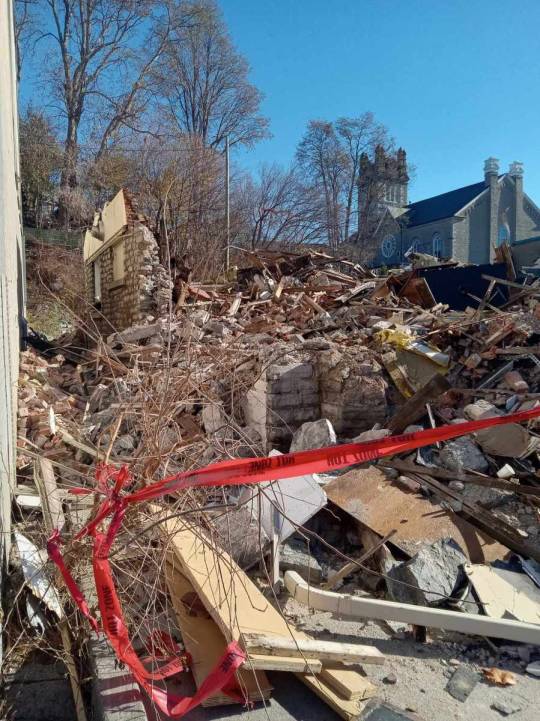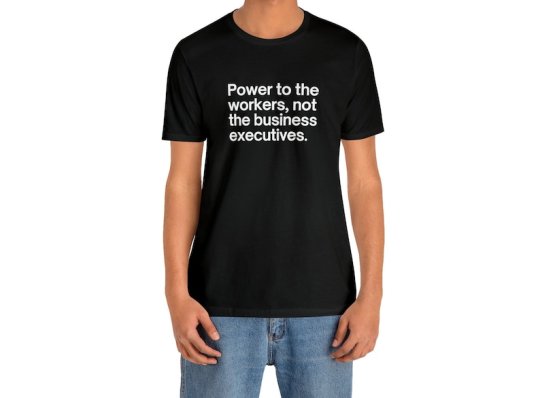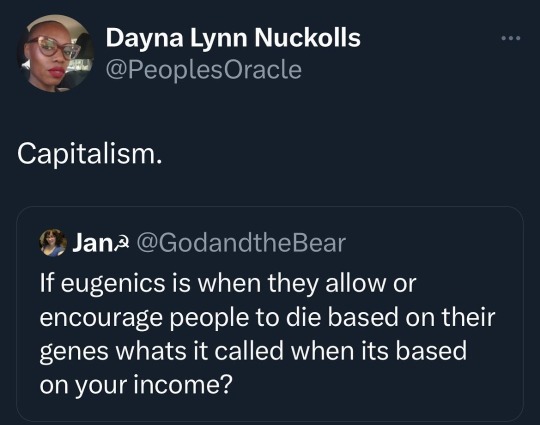#democratic socialist
Text




Alexandria Ocasio-Cortez (AOC)
🇺🇸🇵🇷
#alexandria ocasio cortez#aoc#new york#democrat#democratic socialist#luscious latina#soft full lips#bouricua#chicks with glasses#overalls#cute and sexy#beautiful smile#so pretty
81 notes
·
View notes
Text
You know, the thing is, I'm a Chinese immigrant, and the hammer & sickle symbol makes me physically ill as much as the rising sun flag does.
But please, Pamela from Ohio, USA, tell me all about communism.
59 notes
·
View notes
Text
Progressive Pro-Life Millenial runs for Democratic Presidential Nominee in the US Primaries!
Terrisa2024.com
#us primaries#presidential primaries#potus#vote#democrat#democrats#democratic party#progressive#communist#socialist#democratic socialist#anarchist#humanist#consistent life ethic#pro life#anti abortion#marianne williamson#joe biden#athiest#hide#voting day#victim imagery
12 notes
·
View notes
Text
AOC explaining the concept of ceasefires.
source
🤦🏻♀️🤦🏿♂️🤦🏾♀️
#aoc#alexandria ocasio cortez#democratic socialist#congresswoman#us house of representatives#parody#ai generated
7 notes
·
View notes
Text
Funny how certain groups firmly believe elementary school kids can and should watch live footage of people in a burning building choose to jump to their deaths to avoid being burned alive. But they can't know that their teacher has a husband instead of a wife or a wife instead of a husband.
#discourse#social discourse#liberal#liberalism#democratic socialist#socialism#political discourse#pro lgbt#brett does discourse
57 notes
·
View notes
Text
Resisting DSA's Culture of Disposability to Win the World we Deserve.

It’s National Convention season in the Democratic Socialists of America (DSA), the time when every caucus with 20 members and a twitter account pulls out the knives and the slander to win over the majority of delegates at the National Convention to their positions... only to have them promptly ignored. Accusations of bullying, harassment, targeted destruction of caucus literature are par-for-the-course if you want to be given the blessing of joining DSA’s National Political Committee (NPC) and have half the organization immediately hate you.
Obviously, I am being hyperbolic, but a nugget of truth resides here: DSA has an organizational culture problem. Many of our members enter into a democratically-run, working-class political organization for the first time when they join DSA, and when they do, they bring the trappings of our oppressive, exploitative, and hyper-individualistic capitalist society with them. We come to DSA with our axes-of-oppression and axes-of-privilege along with us: those of gender, race, class, disability, neurotype, sexuality, nationality, language, etc. We come to DSA with our past wounds and the harms that we ourselves have carried out, knowingly or unknowingly. Democracy is always hard because building and exercising collective power requires trusting others. The vast majority of people who come to the Left come to our side battered, belittled, and betrayed by our imperialist-white supremacist-capitalist-patriarchy and how it manifests in our day-to-day lives and interactions. Therefore, when we are wounded by someone, or someone’s, inside of our organization, we respond to that harm in the same ways that we are taught to respond to that harm in our dominant culture—in ways that dehumanize, violate, punish, belittle, shame, harm, and cage. This organizational culture of disposability cannot stand if we want our organization to persist, grow, and win.
I have been involved in my fair share of conflicts since I joined DSA in January 2017. Freshly 20 years old and full of revolutionary fervor, I was a queer kid who’d spent the better part of the previous 5 years being abused by adults in my community and my family-of-origin for being honest about who I was. I had no idea how the legacy of those very fresh inflictions of pain and isolation would manifest in my body-mind and in my relationships. Zero. I did not grow up in a home environment that encouraged emotional maturity and productive conflict. So, I did the best I could to cope and hurt a few people along the way, in my personal and organizational life. I have over-reacted and called people out on Twitter. I have gossiped about minor disagreements instead of approaching my comrade directly. I have guarded my heart from the pain of losing a difficult political fight by pointing fingers at the people organizing closest to me. I am sure that many of you have done similar things. These antisocial behaviors have never gotten me any closer to what I have ultimately wanted, which is personal healing, genuine connection, and the joy that comes from solidarity and collective action. They have lost me more than a few close relationships. They have soured promising organizing efforts. They have made me feel helpless and alone.
I have also experienced harm at the hands of people in DSA, sometimes immense harm that has lost me jobs, caused me mental anguish, and encouraged the darkest whispers in the back of my mind to grow louder. I am sure a lot of people in the organization have experienced these things too, and it sucks. I am sorry. There is no excuse. You deserved better and more. I deserved better and more, too. Ultimately, as I have moved between moments of movement activity and moments of personal rest, healing, and growth over my years in DSA, I have come to the conclusion that I am in this fight for the rest of my life. I am not, however, comfortable resigning myself to an organizational reality that our commitment to abolitionist principles of solidarity, anti-carcerality, universal dignity, and reciprocal care simply stops inside our general meetings, slack channels, signal groups, and comrade-to-comrade relationships.
Practically this means that mandatory censure, suspensions, and organizational expulsions (including de facto expulsions), cannot be entered into without democratic oversight and under the most extreme circumstances of harm. It means that when you sign-up to join DSA that you are committing yourself to practicing transformative justice and swear to respect the rights and dignity of every person in the organization, including those you do not personally like or politically disagree with, as long as they are willing to do the same. It means committing to the work of processing your own pain and refusing to project your past onto others. It means swallowing your ego and admitting when you are wrong or you have made a mistake. It means that when you inevitably fall short of these principles, that you agree to doing the hard thing, having the tough conversations, attending the restorative circle, learning about the importance of believing that none of your comrades are disposable, and committing yourself to furthering the work of solidarity and liberation. If all of us do not do this, if we give in to the forces (state-sanctioned, societal, and personal) that seek to pit us against one another and tear our organization down (as has happened many times before on the Left in the USA and abroad) then we lose.
Today, I invite you to lay down old grievances, dust out your mental cupboards of resentment, and recommit yourself to the work of reciprocal care, of loving your comrades more than you love being right, of embracing the blessing that is leaving that message or email in your drafts until you’ve had more time to reflect, of solidarity and liberation. We have a world to win after all.
------------------------------
Much of this essay was inspired by the work and words of the amazing folks who created or participated in the following pieces of media, please support them!
https://truthout.org/audio/to-transform-conflict-in-movements-we-must-learn-how-to-stay-in-it-together/
https://www.haymarketbooks.org/books/1922-let-this-radicalize-you
https://www.amazon.com/Break-Every-Yoke-Religion-Abolition/dp/0190949155
https://www.haymarketbooks.org/books/1108-how-we-get-free
https://www.amazon.com/Abolition-Feminism-Now-Abolitionist-Papers/dp/1642592587/ref=tmm_pap_swatch_0?_encoding=UTF8&qid=1686951405&sr=1-1
#DSA#Democratic Socialist#democratic socialists of america#socialism#abolition#care#mental health#collective action#solidarity#queer#leftist#left politics
11 notes
·
View notes
Text
#bernie sanders#tyler evans#medicare#medicare for all#notmeus#bernie#digital aritst#solidarity#artist solidarity#solidarity forever#socialist#democratic socialism#democratic socialists of america#dsa#democratic socialist#go fund me#medical bills#healthcare#healthcare is a human right
8 notes
·
View notes
Text
People do NOT respond to guilt and shame very well, especially when it comes to political activism.
On one side, people do not respond well to being told that they were wrong to vote for a candidate that wasn’t left wing enough because they didn’t have any better candidate options and don’t have the time, energy, resources, or courage to risk getting arrested or killed for doing direct action. It causes feelings of guilt, shame, and resentment.
On the other side, people don’t respond to being guilted into voting for a shitty candidate out of desperation for damage control. It makes you look like a pretentious snob. They don’t like feeling as though they are being gaslighted into praising mediocrity.
#political discussion#political discourse#resist#politics#political#leftists strategy#swing left#vote blue no matter who#communism#socialism#anarchism#democratic socialists#democratic socialist#democrats#leftist not liberal#liberals#white liberals#liberal#communist#socialist#anarchist#eat the rich#election year#midterms
11 notes
·
View notes
Photo

this is brilliant! Don’t forget the difference between a public service and a private corporation.
5 notes
·
View notes
Text
Belleville Ontario in Ruins. Belleville Ontario News. 2023-11-20
Written by Ashton Deroy
Photos taken 2023-11-20
Belleville Ontario is in ruins. If you have heard my Social Commentary in the past? I have said that Belleville Ontario will be a dysfunctional or not functional economy by 2033.
This is the rubble of a Building Burned down by Homeless people starting illegal street fires. Something no one wants to report in Belleville Ontario. Either cause the…

View On WordPress
#Ashton Deroy#Autism#Bay of Quinte#Belleville News#Belleville Ontario#Conservative#Democratic Socialist#Feces#Fire#LGBT#Liberal#Litter#Loyalist College#Marketing#Marxist#News#Ontario#Ottawa#Ryan Williams#Socialist#Todd Smith#Toronto#Unionize#Unions
1 note
·
View note
Photo

(via Union Strong General Strike Power to the Workers Anarchist - Etsy)
0 notes
Text
The American Prospect: Paul Starr: The Crash of The New Republic
The American Prospect
I would put it differently and if I was writing for The American Prospect, well if I was writing for The American Prospect, they probably wouldn’t of published what I have to say about The New Republic, because I wasn’t backing the party line. But for the sake of this piece had I wrote this article at The Prospect about The New Republic I would’ve put it differently. I…

View On WordPress
#Big Government#Chris Hughes#Corporate Media#Democratic Socialist#Entertainment Media#Far Left#New Left#Paul Starr#Social Democratic#Socialist#The New Republic#Welfare State
1 note
·
View note
Text
Every day I become more radicalized out of spite
1 note
·
View note
Photo


Alexandria Ocasio-Cortez - GQ Magazine (October 2022)
#alexandria ocasio-cortez#aoc#photoshoot#gq magazine#ladies in suits#elegant and refined#american politics#democrat#democratic socialist#boricua#u.s. house of representatives#washington dc#lovely latina#u.s. congress#capitol hill#u.s. capitol#stylish and sexy
3 notes
·
View notes
Text

#communism#anarchism#antifascism#revolution#socialist#anarchy#democratic socialism#socialism#leftist#anti capitalism#marxism#anti capitalists be like#anti capitalist love notes#anti capitalist excellence
3K notes
·
View notes
Text
Want to Save American Democracy? Build Civil Society and Popular Institutions.

Many do not know this, but in Fall 2020, I started a Masters in Political Science program and swiftly dropped out. There’s lots of reasons that this attempt at doing graduate-level political science failed, but a primary reason is that I am not interested in simply knowing about politics, a huge passion of mine is doing politics. Those who have attained (or tried to attain) any graduate degree in a social science field know that there’s not much time to do anything outside of your coursework, research, and teaching/TAing requirements. Once I experienced the sheer volume of time that completing such a degree would take, and better understood how abysmal the academic job market is in this country, I decided that I would rather do something else with my time and quit.
During my brief stint in an American Political Institutions class, I did learn that I am an institutionalist. I really love democracy and believe that robust popular democratic institutions, within and outside of the state, are vital to democratic flourishing. What is concerning about this is that, since the start of the neoliberal turn in American politics in the 1970s and 80s, there’s been a dramatic decline in popular participation in civil society (i.e. the part of society comprised of non-state institutions and organizations that bring residents of a particular polity together around common causes across lines of difference). From Labor unions to small-to-medium size parishes and houses of worship, from volunteer organizations and mutual aid societies to bowling clubs and knitting circles, US-Americans are far less likely to participate in civil organizations and institutions, like those I listed, in 2022 than they were in 1972. Even though the USA has always been a weak and limited liberal democracy, US civil society and civil institutions have historically been some of the most robust in the whole world, which has often made up for the lack of social provision and means of popular participation in formal liberal democratic governance. As neoliberal policies emerged, they undermined civil institutions like labor unions, which undermined social democratic policies, which further eroded civil institutions. What we are currently left with is a threadbear social order, mass oppression, immiseration, alienation, and inequality, and a liberal democracy on the brink of total collapse.
I believe firmly that as socialists, we must build our own institutions of the Left (like the Democratic Socialists of America, Labor Notes, and Haymarket Books) but we must also support, build, and work to transform already existing civil institutions towards more liberatory and egalitarian ends. I am a proud Episcopalian. Not only does the Episcopal liturgy and social Witness really speak to my soul, but I am proud to be a part of a Mainline Protestant Christian denomination that has worked, and continues to work towards racial, gender, economic, and climate justice. We do all these things, with God’s help, through democratic participation at all levels of Church life. In this work, in this way, we are democratically transforming an old institution, that has historically been a safe-place for white US capitalists and aristocrats, into a justice-centered, democratic, popular institution for ordinary people.
I am also a member of the Texas State Teachers Association, which is affiliated with the National Education Association, a large labor union representing teachers and education workers across the USA. I am genuinely proud to see my union dues come out of my account every month because I know, in my own small way, that I am contributing to the collective efforts of education workers across this country. Together we are organizing to protect our public schools, expand our public education system, and bring about education justice. When I attend a union organizing meeting, or share a meal with my co-workers and chat about what we could do if we had a more democratic, militant, robust union local, I am building on the work of union educators of the past who fought to build and protect our schools for kids like I was, a child who went to well-funded public school from Kindergarten through my Master’s degree (I have a Master’s of Education).
Both of the examples of civil institutions that I gave, churches and labor unions, also control large amounts of money. Many of these institutions still have mechanisms for democratic oversight and management of these resources, even as the actual exercise of these democratic rights has fallen away. In my view, this creates a window for socialists to engage in these institutions so that we can democratically take control of their monies, buildings, durable assets, and clout and use them towards our project of building a new democratic socialist republic in North America. Moreover, If we are going to break out of our democratic malaise and transform our economy and society into one that democratically works for the popular majority, and not just a tiny, largely white-male affluent elite, then we need to build on the legacy of our movement foreparents who struggled daily in union halls and parish halls, who communed daily around kitchen tables and backyard fires, to build a social fabric that could endure sways in the whims of the ruling elite.
As I have lived through wave after wave of social crises, political crises, ecological crises during my 26 years on this planet, it has become clear to me that the ruling class is not going to save us. They do not care if we live or die. Therefore we need to do what we can to build civil institutions that can support ordinary people like ourselves and those we love, that can endure for generations to come. Let our legacy be that we built a world where workers are cared for. Let future young radicals know what we know now, that socialists and freedom fighters of the past loved them so much that we fought for a society and a planet where they can live a delightful, free life.
#democratic socialist#democratic society#democracy#liberal democracy#civil society#labor#labor unions#socialism#churches#politics#progressive politics#unions#union strong#union proud#episcopalian#anglican#anglicanism#dsa
5 notes
·
View notes